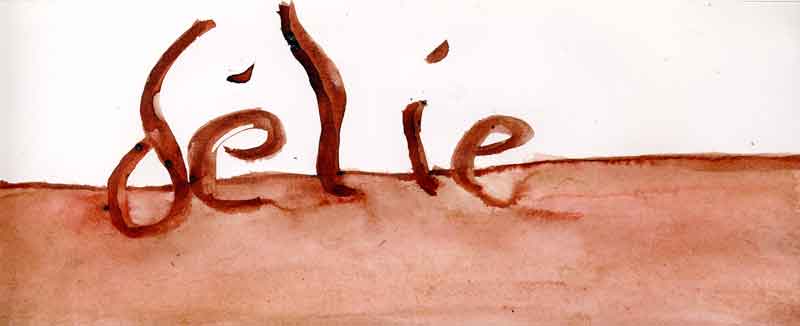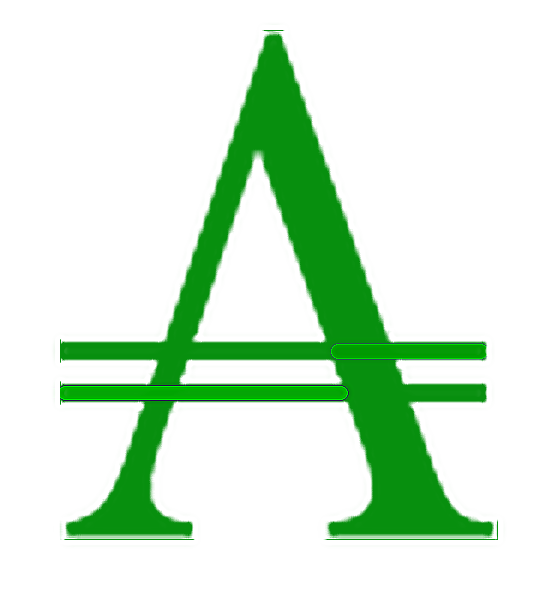“délie in Schoonschrift”
dv, 2010 bister op papier, 9×22 cm
Klik op de titel voor een PDF-bestand van het artikel:
- Defaux, Gérard, (Re)visiting “Délie”: Maurice Scève and Marian Poetry, Renaissance Quarterly, Autumn, 2001, Vol.54(3), p.685-739
- Abstract:
This study proposes a new reading of “Délie” and tries to shed a new light on the poet himself. Scève appears here not only as the humanist we all know, but as a Christian poet, a poet as much interested in biblical and other religious sources as in Classical and Italian ones. In his “canzoniere,” Scève follows very closely, and even sometimes imitates, a corpus of fixed-form poems — “rondeaux parfaits, ballades,” and “chants royaux” — written by poets of the two previous generations for poetic contests known as “Puys.” And he constantly expresses his love and describes his idol in terms, images, and symbols directly borrowed from Marian poetry. To the Christian cult of the Virgin Mary corresponds for the Lover the pagan cult of Délie.
- Abstract:
- Banks, Kathryn, Opposites and Identities: Maurice Scève’s Délie and Charles de Bovelles’s Ars Oppositorum, French Studies, 2008, Vol. 62(4), p.389-403 [Peer Reviewed Journal]Oxford University Press 2008
- Abstract:
In early sixteenth-century France, uses and conceptions of opposition were varied and shifting. This article analyses some complex and apparently paradoxical notions of opposites and identities found in two very different texts, Charles de Bovelles’s Ars oppositorum (1511) and Maurice Scève’s Délie (1544), examples of Latin prose philosophy and vernacular love lyric respectively. I argue that Sce`ve’s poetry, like Bovelles’s theory, reflects profoundly upon opposition, difference and identity. In particular, I focus in the De´lie upon relations of opposition and similarity between ‘microcosm’ and ‘macrocosm’, evoked through the poet’s use of the ‘jealous sun’ topos. Bovelles explores models of opposition drawn from contrasting generic contexts, including Aristotelian logic and Cusa’s mystical theology. However, both the De´lie and the Ars diverge in striking ways from strict categorizations of difference and identity (as typified by traditional dialectic). Both think through the relationships between antithetical modes of difference and other kinds, attempting to imagine even the co-existence of difference and identity. Both also present ways in which one relation of difference inflects another, and thus offer particularly complex accounts of dynamic interactions between opposites.
- Abstract:
- Banks, Kathryn, Difference, Cognitio, and Causality:Maurice Scève’s Délie and Charles de Bovelles’s Ars Oppositorum, French Studies, Apr2010, Vol. 64 Issue 2, p139 [Peer Reviewed Journal]
- Abstract:
This article juxtaposes two very different texts, Charles de Bovelles’s Ars oppositorum (1511) and Maurice Scève’s Délie (1544), examples of Latin prose philosophy and vernacular love lyric respectively. It is not a study of sources: it considers the literary text, like the Latin prose, as an instrument for thinking with. Furthermore, I suggest that contrasting conceptual possibilities arise from generic differences, so that the study of two divergent genres illuminates a variety of related conceptions of difference. I trace a shared interest in the respective roles of cognition and causality in establishing differences, but also a divergence concerning the value of difference, in particular for the human subject. Thus, in the Délie, I focus upon images of illuminating, looking, perceiving, and disintegrating. Both texts suggest that cognition is crucial to the establishment of differences, so that it even seems to usurp the function of natural causality. However, in the De´lie the je suffers from difference — both difference within the self and difference from the divine — whereas in the Ars difference can be thought of as a violation but more often is perceived in Trinitarian terms, so that the human subject achieves a privileged sort of self-difference resembling that of the divine.
- Abstract:

